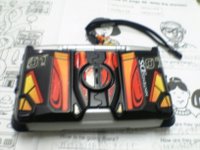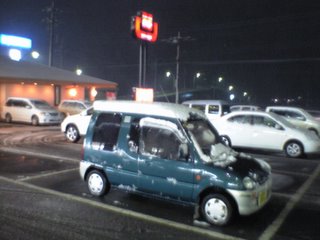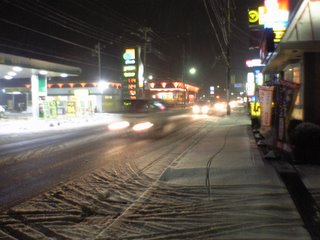I finished watching the Japanese TV drama "One Liter of Tears" over the holiday. While I was at it the boy, one of the main characters, says something that's haunted me since, roughly translated and dug up from faulty memory, "No living things except humans try to prolong their life expectancy. Maybe we're the ones who don't know our place in the universe?" It's agreeable there is at least a little bit of greed involved there. But someone once said without us the man giving meaning to the universe its existence would only have been insignificant. Yes but that's like if you say your girlfriend wouldn't know love if she's never loved by you. (hah!)
Anyway I'm continuing my sole effort to "decipher" the mystery that is life. And the only one and efficient way to do this is to view it as objectively as possible. What I don't share with you is potentially more important to my "research" than not. How I wish I could just manipulate reality for the benefit of tapping into better understanding. My god I have all the right stuff for an evil scientist minus the knowledge part.
FujiTV 1リットルの涙
Tuesday, January 31, 2006
Thursday, January 26, 2006
a colder year than usual
Wednesday, January 18, 2006
another day another year
The years are creeping by. While I believe a birthday is just an uninspired excuse to celebrate one's life, as time passes, reminiscing ain't all that bad. I've always been an old kid growing up. Now that I actually am, I'll share with you a little bit of insight I've gathered in the past year. Physical reality is only part of the fabric of truth in which itself is up for interpretation and is bounded by social norms. There is more to life than materialism in either the philosophy or worldly sense. That said, I had a nice dinner with a friend and received a couple of presents. I again actively avoided gatherings as if I'm repenting for crimes that I didn't commit, or did I? I'm afraid I got a little too infatuated with my current modus vivendi.
OK tonight the next door neighbors having sex in the apartment separated from mine by a paper thin wall don't help. Half the time I can't tell if she sounds like she's gaping for air amid rushs of enjoyment or merely being tortured. But of course the two can go hand in hand for all I know. I applaud their efforts of 1+ hours of rolling. I guess it's reciprocal.
OK tonight the next door neighbors having sex in the apartment separated from mine by a paper thin wall don't help. Half the time I can't tell if she sounds like she's gaping for air amid rushs of enjoyment or merely being tortured. But of course the two can go hand in hand for all I know. I applaud their efforts of 1+ hours of rolling. I guess it's reciprocal.
Sunday, January 15, 2006
scientist in you
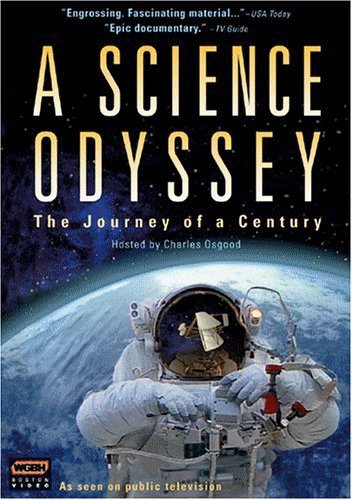 Curiosity kills the cat, but before it does, it rewards him with scientific gratification. It might well be worth the death. And then there are others who would pick up from where it's left off. If it weren't for curious people in the world doing tedious seemingly valueless experiments, which in more cases than not, are just that, there would be very little forward mobility in human comprehension of the environments surrounding us. Scientific discoveries are a social process. Our science odyssey will never end.
Curiosity kills the cat, but before it does, it rewards him with scientific gratification. It might well be worth the death. And then there are others who would pick up from where it's left off. If it weren't for curious people in the world doing tedious seemingly valueless experiments, which in more cases than not, are just that, there would be very little forward mobility in human comprehension of the environments surrounding us. Scientific discoveries are a social process. Our science odyssey will never end.download the 10 part series on MVGroup.
Part 1&2 Origins
The earthquake that shatters San Francisco in 1906 opens a century of explosive discoveries and debates in the earth sciences. See the Earth through the eyes of Alfred Wegener, who struggles to convince the scientific establishment that continents move. Watch as radiodating techniques increase Earth's estimated age - sometimes inspiring skepticism if not outrage. Meanwhile, a parallel upheaval rumbles the life sciences, where new evidence of our primate ancestors and the discovery of DNA's structure stir up controversies of their own. Ancient fossils and living cells give up their secrets to change our view of our species and the mechanics of life.
Highlights include: Age and origins of the Earth. Volcanoes. Earthquakes. Alfred Wegener. Continental drift. Harry Hess. Plate tectonics. The Himalayas. The formation of mountains. Religion, myth, and science. Human origins. The Scopes trial. The legacy of Charles Darwin. Mutation and adaptation. Paleoanthropology. Louis and Mary Leakey. Donald Johanson and "Lucy." Primordial soup. DNA. Origins of life.
Part 3&4 Mysteries of the Universe
At the beginning of the century, discoveries about the hidden workings of the everyday world suggest all is not as it seems. Quantum theory, relativity, nuclear power, and clues about the birth and death of the universe have rocked our deepest beliefs. Mysteries of the Universe journeys from the subatomic world of the atom to the farthest reaches of space and time, and into the laboratories of the men and women whose work has forever altered physics and astronomy.
Highlights include: George Ellery Hale and the Mount Wilson telescope. Henrietta Leavitt. Edwin Hubble. Albert Einstein. Niels Bohr and the Quantum Theory of Matter. The structure of the atom. Jocelyn Bell and pulsars. The size of the universe. The Big Bang. Black holes. Quarks. Super colliders. Unified field and string theories.
Part 5&6 In Search of Ourselves
It's all in the genes. Or is it? In Search of Ourselves traces the pendulum swing of psychological theory from nature to nurture and back again. Case studies, classic experiments, and research on the brain blaze this trail of discovery, revealing what we have learned about ourselves and what still remains a riddle. We also see the dark side of our faith in the perfectibility of human nature, as scientific ideas are twisted to fit political agendas. In Search of Ourselves is a story of the lessons learned, as well as the ways which we have learned them. As the century draws to a close, human behavior remains an irresistible frontier.
Highlights include: Jean-Martin Charcot and hysteria. Sigmund Freud. Psychoanalysis. Shell shock. IQ tests. Eugenics. Scientist-turned-ad-man John B. Watson and the behaviorist movement. Conditioning. B. F. Skinner. Harry Harlow and the power of love and comfort. Frieda Fromm Reichmann and the treatment of schizophrenia at Chestnut Lodge. Mental institutions. Drug therapy. Alzheimer's disease.
Part 7&8 Matters of Life and Death
From the days of house calls to the era of high-tech hospitals, Matters of Life and Death tracks the passion and determination of medical science in the twentieth century. Dramatic experiments, the politics of science, and races against the clock form a backdrop to the discovery of new treatments, antibiotics, and advances in surgery and medical technology that have lengthened our lives and force us to rethink our assumptions about life and death.
Highlights include: Bubonic plague. Joseph Goldberger and pellagra. Frederick Banting, Charles Best, James Collip and insulin. Chronic illness. Alexander Fleming and penicillin. Howard Florey and Ernst Chain. Open heart surgery. Kidney and heart transplants. The mechanics and politics of organ transplantation. Cancer.
Part 9&10 Bigger, Better, Faster
Our science odyssey starts in a modest, turn-of-the-century home. Inklings of change are evident, but are the residents prepared for the technological transformation the coming years will bring? The startling view of gravity-defying humans flying free from the earth is just an introduction to the surprises ahead. And each new technological development, whether a car for the masses or a worldwide computer network, brings profound changes to homes across the country and the globe - and to the lives of the people in them.
Highlights include: The Wright brothers. France and the U.S. compete for the first in flight honors. Cal Rodgers, the "Vin Fiz" Flyer, and the first trans-American flight. The airplane goes to war. Henry Ford and the Model T. Mass production - and consumption. Technology pushes social change. Radio. The 1939 World's Fair. Breaking the polymer barrier. Wallace Carothers and nylon. The Whirlwind. NASA and the space race. The Internet and the World Wide Web.
Tuesday, January 10, 2006
record snowfall

Snow accumulation last recorded at Jan 10th 9am.
Niigata prefecture takes the cake with 360cm (~ 11.8 feet).
 This is not the recreational kind of snow. We're talking about 71 killed in Northern Japan. With snow piled up on sidewalks and roadways, lots are trapped and unable to get to food or shelters. Among the 71 victims most are senior citizens living in remote areas where snow removal is slow and therefore they take it up to themselves to do the job and if you ever picked up a shovel you know how much work it really is. As seen in this news photo, they're not going anywhere for a while.
This is not the recreational kind of snow. We're talking about 71 killed in Northern Japan. With snow piled up on sidewalks and roadways, lots are trapped and unable to get to food or shelters. Among the 71 victims most are senior citizens living in remote areas where snow removal is slow and therefore they take it up to themselves to do the job and if you ever picked up a shovel you know how much work it really is. As seen in this news photo, they're not going anywhere for a while.Record snowfall in Japan kills 3; troops removing snow
Death toll in record Japan snowfall rises
current road condition (major highways) in Japanese
-if you drive in Japan, this is necessary information. Luckily the outrageous record snowfall in Niigata, Nagano, Akita, aomori, yamagata, Fukui, and general Tohoku areas doesn't affect Kanto where I live.
Some videos: 3 meters of snow 1 2 3

To some, the only way out is the windows on the second floor.
Saturday, January 07, 2006
more snow
There is enough snow on the ground today to make a commendable mini snowman. These are my student's works.


Let it snow! The theme continues...


Let it snow! The theme continues...
Yeah, what's the big deal right? It's cold enough here to snow, no doubt, but the warm oceanic air carries too much heat ashore making it difficult to snow in Kanto especially coastal areas even though the ground temperatures are well below zero. See map:

Friday, January 06, 2006
Onsen 加仁湯

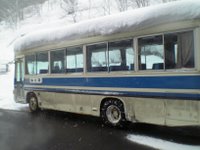
view from our room; up the mountains it took two buses, this is the second one, snow tires plus chain


from the main door, look closely you see me taking the picture.
I've been to one and a half dozens different onsens in Japan. This is by far the best one yet - Okukinu Kaniyu (奥鬼怒温泉 加仁湯) Japanese info English info
Personal experience: even from where I am at it takes over three hours and mostly on the expressway just to drive to the town near the onsen in Tochigi prefecture. Make sure you make a reservation before you go. I saw monkeys. They are too shy to bathe with us in the outdoor, just wandering from a distance. You can definitely hear them, though spotting where they are is less easy.
From Tokyo just take the Tohoku Expressway (東北道) via Shutoko (首都高).
Get off nearest Imaichi City (今市市) in Tochigi (栃木県).
Find Chokyu Onsen (長久温泉), take the bus from there and it will be another three hours up the mountain depending on weather. (e.g. snowy)

an overlook of Kaniyu
Subscribe to:
Posts (Atom)

